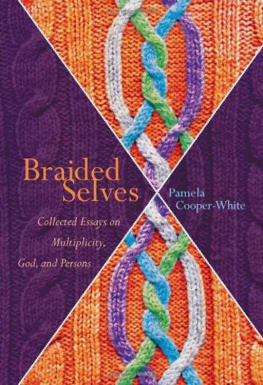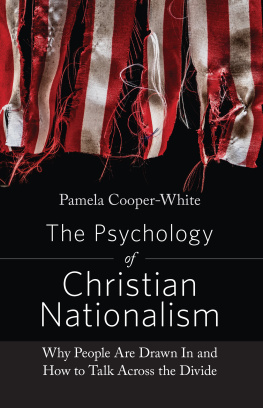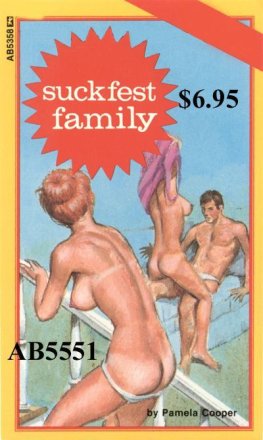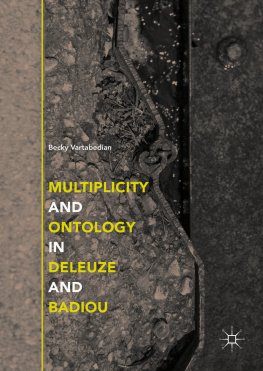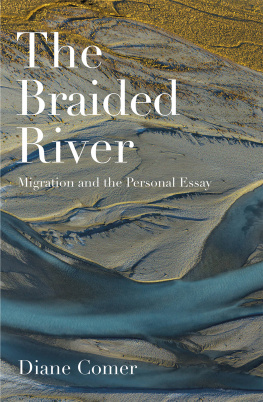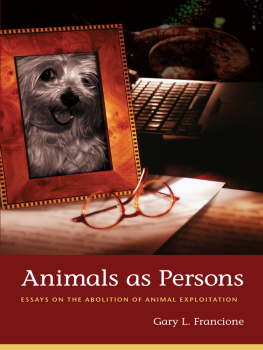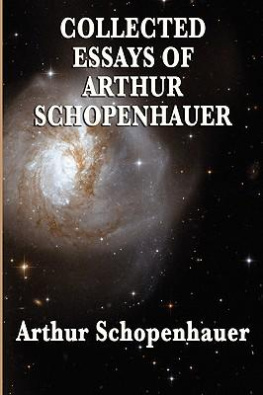Pamela Cooper-white - Braided Selves: Collected Essays on Multiplicity, God, and Persons
Here you can read online Pamela Cooper-white - Braided Selves: Collected Essays on Multiplicity, God, and Persons full text of the book (entire story) in english for free. Download pdf and epub, get meaning, cover and reviews about this ebook. year: 2013, publisher: Cascade Books, genre: Religion. Description of the work, (preface) as well as reviews are available. Best literature library LitArk.com created for fans of good reading and offers a wide selection of genres:
Romance novel
Science fiction
Adventure
Detective
Science
History
Home and family
Prose
Art
Politics
Computer
Non-fiction
Religion
Business
Children
Humor
Choose a favorite category and find really read worthwhile books. Enjoy immersion in the world of imagination, feel the emotions of the characters or learn something new for yourself, make an fascinating discovery.
- Book:Braided Selves: Collected Essays on Multiplicity, God, and Persons
- Author:
- Publisher:Cascade Books
- Genre:
- Year:2013
- Rating:5 / 5
- Favourites:Add to favourites
- Your mark:
- 100
- 1
- 2
- 3
- 4
- 5
Braided Selves: Collected Essays on Multiplicity, God, and Persons: summary, description and annotation
We offer to read an annotation, description, summary or preface (depends on what the author of the book "Braided Selves: Collected Essays on Multiplicity, God, and Persons" wrote himself). If you haven't found the necessary information about the book — write in the comments, we will try to find it.
Braided Selves: Collected Essays on Multiplicity, God, and Persons — read online for free the complete book (whole text) full work
Below is the text of the book, divided by pages. System saving the place of the last page read, allows you to conveniently read the book "Braided Selves: Collected Essays on Multiplicity, God, and Persons" online for free, without having to search again every time where you left off. Put a bookmark, and you can go to the page where you finished reading at any time.
Font size:
Interval:
Bookmark:
Collected Essays on Multiplicity, God, and Persons
Pamela Cooper-White
CASCADE Books - Eugene, Oregon
BRAIDED SELVES
Collected Essays on Multiplicity, God, and Persons
Copyright 2011 Pamela Cooper-White. All rights reserved. Except for brief quotations in critical publications or reviews, no part of this book may be reproduced in any manner without prior written permission from the publisher. Write: Permissions, Wipf and Stock Publishers, 199 W. 8th Ave., Suite 3, Eugene, OR 97401.
Cascade Books
An Imprint of Wipf and Stock Publishers
199 W. 8th Ave., Suite 3
Eugene, OR 97401
www.wipfandstock.com
ISBN 13: 978-1-60608-668-1
Cataloging-in-Publication data:
Cooper-White, Pamela, 1955
Braided selves : collected essays on multiplicity, God, and persons / Pamela Cooper-White.
viii + 244 p. ; cm.Includes bibliographical references.
ISBN 13: 978-1-60608-668-1
1. Pastoral Psychology. 2. Pastoral Counseling. 3. PsychotherapyReligious AspectsChristianity. 4. WomenPastoral Counseling of. I. Title.
BV4012 .C66 2011
Manufactured in the USA.
The author and publisher gratefully acknowledge the permission of the following journals and publishers for their permission to reprint articles and essays in adapted form in the present volume.
Chapter 1 was originally published as Thick Theory: Psychology, Theoretical Models, and the Formation of Pastoral Counselors, in The Formation of Pastoral Counselors: Challenges and Opportunities , edited by Duane R. Bidwell and Joretta L. Marshall (Binghamton, NY: Haworth Press, 2006) 4767; simultaneously co-published in the American Journal of Pastoral Counseling 8.34 (2006) 4767. Copyright Taylor & Francis/Haworth Press, 2006. Adapted by permission of Taylor & Francis.
Chapter 2 was originally published in Human Development and Faith: Life-Cycle Stages of Body, Mind, and Soul , edited by Felicity Brock Kelcourse copyright Chalice Press, 2004. Adapted by permission of Chalice Press.
Chapter 3 was originally published in Pastoral Psychology 50.5 (2002) 31943. Copyright 2002 Springer. Adapted by permission of Springer.
Figure 3.5 first appeared in Heinz Kohut, The Two Analyses of Mr. Z, International Journal of Psycho-analysis 60 (1979) 11, used by permission of Dr. Thomas A. Kohut, Dec. 2, 2010.
Chapter 4 was originally published in Pastoral Psychology 57.12 (2008) 116. Copyright Springer, 2008. Adapted by permission of Springer.
Chapter 5 was originally published in Spiritual and Psychological Aspects of Illness: Dealing with Sickness, Loss, Dying, and Death , edited by Beverly A. Musgrave and Neil J. McGettigan, copyright Paulist Press, 2010. Adapted by permission of Paulist Press. Portions adapted from Cooper-White, Shared Wisdom: Use of the Self in Pastoral Care and Counseling copyright Fortress Press, 2004; and Many Voices: Pastoral Psychotherapy in Relational and Theological Perspective , copyright Fortress Press, 2007. Adapted by permission of Augsburg Fortress Publishers.
Chapter 6 was originally published in Women Out of Order: Risking Change and Creating Care in a Multi-Cultural World , ed. Teresa Snorton and Jeanne Stevenson-Moessner, copyright Fortress Press, 2009. Adapted by permission of Augsburg Fortress Publishers.
Chapter 7 originally published in Reflective Practice: Formation and Supervision in Ministry 29 (2009) 2337. Adapted by permission Herbert Anderson, editor, Reflective Practice .
Chapter 8 originally published as I Do Not Do the Good I Want but the Evil I Do Not Want Is What I Do: The Concept of the Vertical Split in Self Psychology in Relation to Christian Concepts of Good and Evil, Journal of Pastoral Theology 13.1 (2003) 6384.
Chapter 9 originally published in In Search of the Self: Interdisciplinary Perspectives on Personhood , edited by Wentzel Van Huyssteen and Erik P. Wiebe, copyright Eerdmans, 2011, 14162. Adapted by permission of Wm. B. Eerdmans Publishing Co.
All writing is conversation. The intention is to get something going, to lob a thought or to return it with a new spin. Writing extends the reach of ideas beyond the immediate circle of students, friends, and colleagues to conversation partners the writer can hardly even imagine. The intention behind this book is to continue and expand a challenging conversation that has been going on for a while now, about what it means to be an I, and how much more complex and fluid the understanding of I has become or is still becoming in postmodernity. This particular book is written from the perspective of a pastoral theology (an interdisciplinary field that works at the intersection of constructive theology and the theory and practice of spiritual care and clinical psychology), so the conversation further engages this question of the complexity of persons in light of who and what we believe and imagine God to be.
To the extent that all our beliefs about God begin in and amid human experience, the psychological and the theological must ring true to both realmsthe realm of belief and the realm of experience. That experience itself is subjective, permeated with imagination, competing and contradictory beliefs, and even (as Sigmund Freud spent his career warning us) self-deception becomes less of a problem in postmodernity, because variability and even contradiction are now being valued in ways modernity could not conceive. As we begin to exchange static metaphors and models of the universe, the self, and even God for models that are less concrete and hard edged, more flexible and permeable; and as we mute our claims to possession of a universal truth in favor of a more modest, local, and culturally contingent approximation of truth(s), we may find new richness, openness, and expansiveness in both our theology and our anthropology (our understanding of what it means to be a human person). Ultimately, I believe, the more complexity we can admit to in ourselves, other persons, and our conception of the transcendent or the divine, the more we will experience empathy and compassion toward ourselves, other human beings, and ultimately, the whole creation.
The premise of this book is that both persons and God are multiple , and that this multiplicity, although intuited in past generations, needs to be foregrounded in ways that were unthought and perhaps even unthinkable until the postmodern era. There has always been a dialectic of One and Many. In ancient times (e.g., with Platos concept of the tripartite soul/ psyche ), However, a dominant theme in the West, particularly with the advent of the Enlightenment, has been unity/integration of the self (at least as an ideal) and an emphasis (through deism and theism) on God as singular prime mover and (only in Theism) shaker of the universe.
As we have been increasingly emerging in the twentieth and twenty-first centuries from the grip of modernity (in particular the legacy of Descartes and eighteenth-century rationalism), we are also beginning to question its foregrounding of unity, oneness, and integration. The rhetoric and ideal of unity has served many admirable purposesas a resident of Gettysburg, Pennsylvania, where one of the most pivotal battles of the Civil War was fought right here on seminary ground, I am especially mindful of the language of Union, and grateful that the horror of slavery was abolished in all the states and territories of the still fragile United States of America. Yet I am also mindful of the ways in which the symbols of union, equality, and the melting pot, fused with the Enlightenment image of the rational, free (white, male, and preferably Christian and landowning) citizen have actually served to exclude and disenfranchise women, persons of color, non-Christians, immigrants, non-English speakers, the landless, and the poor. By making the image of the ideal citizen, the normative image of the privileged One and holding out equal opportunity as a fact rendered invisible and unquestionable the realities of exclusion, inequality, and oppression.
Font size:
Interval:
Bookmark:
Similar books «Braided Selves: Collected Essays on Multiplicity, God, and Persons»
Look at similar books to Braided Selves: Collected Essays on Multiplicity, God, and Persons. We have selected literature similar in name and meaning in the hope of providing readers with more options to find new, interesting, not yet read works.
Discussion, reviews of the book Braided Selves: Collected Essays on Multiplicity, God, and Persons and just readers' own opinions. Leave your comments, write what you think about the work, its meaning or the main characters. Specify what exactly you liked and what you didn't like, and why you think so.

